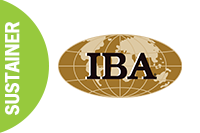Series Overview
These are the most important health code changes impacting hospitality businesses in 2022:
- Management and personnel changes – There will be changes to the duties outlined for a person in charge or shift manager. The certified food protection manager requirement will be updated.
- Potentially Hazardous Foods – This familiar term will be updated to “Time/Temperature Control for Safety (TCS) foods.”
- There are new reporting requirements around employee health and new guidelines on bare hand contact.
- There are new standards for date marking foods.
- There are changes to the code in regard to cooking ground meat and poultry products.
- There are changes to the rules on fish, shellfish and produce washing.
- Operational changes include the requirement of written plans on vomit and diarrheal cleanup;
- The rules surrounding pets on premises, including comfort animals;
- And code updates related to washing and sanitizing utensils. Rules on refilling customer-owned containers will also change.
- Some establishments were also removed from the code. One change excludes certain types of beverage businesses that meet a very specific definition from some rules. For example, lemonade stands and small bed and breakfasts that are not operated year-round are excluded.
Jump to Topic:
- Certified Food Protection Manager
- Active Managerial Control
- Cleaning & Sanitizing
- Date Marking
- Vomit & Diarrhea
- Employee Health
- Bare Hand Contact
- Food Changes
- Refillable Reusables
- Pet Dogs
- Webinar
- FAQs
The Certified Food Protection Manager (CFPM) has been a requirement in the federal food code for several years. It is now going to be a requirement in the Washington food code for the first time.
However, unlike other elements of the food code changes taking effect in March of 2022, food establishments have until March 1, 2023 to comply with the new certified food protection manager requirement.
A few key points for the state requirement that differ from the federal requirement:
- Washington will require one employee per establishment. The CFPM can be the business owner, a manager or a contractor.
- The CFPM does not need to be on the premises at all times.
- The CFPM will be responsible for creating written plans and training the Person in Charge.
- While the CFPM does not need to be on the premises, the certification does need to be on the premises at all times.
- You will have 60 days to find a replacement when your CFPM leaves your business.
Certification
Certified Food Protection Managers must be certified through an American National Standards Institute (ANSI) accredited program. Washington Hospitality Association members can sign up for training and certification through our partnership with the National Restaurant Association and ServSafe. Reach out tofor more information.
Certifications expire and must be renewed after five years.
The primary goal of incorporating active managerial control is to reduce the risk of foodborne illnesses. Active managerial control is designed to empower managers to mitigate risks and correct problems that come up.
Implementing active managerial control successfully will require:
- Establishing policies & procedures for reducing foodborne illnesses. Policies and procedures are not required to be written, but that is a best practice to help ensure all team members are on the same page.
- Providing ongoing training to ensure employees the most up-to-date information.
- Verifying that team members have been trained, understand what’s required and are following the policies and procedures designed to reduce the risk of foodborne illness.
Active Managerial Control Toolkit
The Department of Health is working on a toolkit and other materials to help you evaluate if you have active managerial control. Current AMC toolkit materials available for download include:
There are four changes to the state food code going into effect March 1, 2022, related to cleaning and sanitizing processes in your food establishment. There’s a good chance you are following these processes already, but the Department of Health received feedback that there was some confusion in the code on these topics, so the updated food code provides additional clarity.
Monitoring food temperature
Food establishments are required to have temperature measuring devices to ensure food is cooked to proper temperatures. However, the new update clarifies the requirement to have small-diameter probes to measure thin foods such as hamburger patties and fish filets. The key here is to make sure the measuring device is where the temperature can be measured with the tip of the probe.
Dishwashing test strips
Making sure water is getting hot enough for high-temperature washers is key to ensuring dishes and utensils are sanitized properly. The code now requires you to have test strips that measure chemical levels inside the dishwasher or testing strips to make sure the water is getting hot enough.
The code does not require you to test your equipment at specific intervals. However, this is an item that will be checked during every health inspection. A good best practice is to use the test strips regularly to ensure your dishwashing equipment is working properly.
Soap and sanitizer
Some operators may have an established process where equipment sanitizing happens at a set time, like at the end of the day. A new change in the food code will require your team to have access to equipment sanitizing stations as they do food prep throughout the day.
Hard close-grained woods
The list of allowable uses of hard, close-grained wood products is being expanded to include serving boards. You may have maple boards or other hard, close-grained wood products that you use as cutting boards, for example. Those boards may now also be used as serving boards so long as those boards can be properly washed, rinsed and sanitized before they are reused.
The practice of date marking foods is designed to prevent Listeria — an illness from bacteria that can grow in refrigerated foods over time. Date marking encourages a “first in, first out” practice designed to rotate stock as quickly as possible and should be a back-of-house practice – not something that is customer-facing.
New changes around date marking foods are coming to the state food code starting March 1, 2022. Date marking only applies to:
- Cold, refrigerated food
- Ready-to-eat food
- Time/Temperature Control for Safety (TCS) food
- Food prepared inside the food establishment or opened packaged food
- Food that you store for more than 24 hours
Foods that meet those criteria require date marking. If they do not meet one or more of those criteria, they do not need to be date marked.
Date marking systems
You do not have to subscribe to a specific date marking system. You can use a variety of methods such as color-coded stickers, written stickers, or calendars – whatever works best for your business. However, whatever system you use, you must train your team so that everyone is on the same page. And the system must be explainable to a health inspector. While not a requirement of the food code, a good best practice would be to have your date marking system in writing so that the system can be clearly explained to your team members and health inspectors.
Day One starts as foods are prepared or opened from their packaging. From there, the foods must be used within seven days before discarding them. Freezing foods will allow you to pause the calendar, but it doesn’t restart the clock.
Exemptions
- Some foods are exempt from date marking requirements, including:
- Deli salads prepared & packaged in a food processing plant
- USDA-regulated, shelf-stable fermented sausages & salt-cured meats
- Shellstock
- Hard and semi-soft cheeses
- Cultured dairy products
- Preserved fish products
- Reduced oxygen packaging food
The new food code requires every food establishment to have a written plan on how they handle events involving vomit and diarrhea.
Your written plan should include procedures that reduce exposure to four things:
Food
Your plan should specify which food will be discarded. The health department recommends unwrapped food within 25 feet of a vomiting incident be discarded.
Employees
- Include the personal protective equipment employees should use like gloves and masks.
- Specify how they should clean their garments after clean-up.
- Establish who will be monitoring the employee to make sure they don’t get sick after cleanup.
Consumers
Include your procedures for isolating or cleaning such as roping off the affected areas.
Surfaces
This will be specific to your business. Look at all surfaces and make sure you have the right materials to clean them. The cleaning solution you use should specify on the label that it is effective against norovirus.
Make sure your managers and persons in charge…
- Are trained to watch for the key symptoms and illnesses that can pose a threat.
- Know what to do if there is a potential for foodborne illness.
- Ensure that workers practice good hygiene at all times – even if they are feeling healthy.
Symptoms and illnesses to watch for
Each employee must be informed that they are required to report specific information about personal health conditions that can be spread through food to the person in charge including:
- The date the employee first had symptoms.
- Whether the employee had a medical diagnosis and what it was.
- If they were potentially exposed to a foodborne illness
Ill food workers
There are two levels of action that are required for ill food workers.
Restriction is when workers are kept away from clean equipment and are not allowed to handle unpackaged food or items like clean utensils. They can still do other tasks like sweeping. Some symptoms that require restriction include:
- Coughing
- Sneezing
- Sore throat
- An inflamed cut.
Exclusion is the more serious level that requires workers to be excluded from the food establishment. This is required if they have specific symptoms or a diagnosed illness. The symptoms include:
- Diarrhea
- Vomit
- Jaundice
And the diagnosed illnesses that would require a worker to be excluded are:
- Shigella
- E. coli
- Hepatitis A
- Salmonella
- Norovirus
- Washing produce
- Prepping food to cook
- Approved plans
Food establishments can apply for a variance for bare hand contact by getting a plan approved by their local health department. If you are creating a plan for your business to apply for an exemption, or because you want to reduce the potential of foodborne illness outbreaks, you should make sure:
- Workers are well trained to know when they are too sick to work with foods.
- You have two or more handwashing control measures. Add another level to routine handwashing like an extra step with sanitizer or scrubbing with a brush after regular handwashing.
In order to apply for a bare hand contact exemption you must have:
- A written employee health policy
- Two or more handwashing control measures
- Employee training
- Handwashing sinks near the bare hand contact areas
- Engage in active managerial control. Have written rules for your employees and make sure they are trained on them.
Ground meat
- Current requirement: Cook to 155°F and hold for :15
- New requirement: Cook to 158°F and no hold time required*
* You may apply for an approved plan with your local health department if want to cook ground meat to a different temperature.
Poultry
- Current requirement: Cook to 165°F and hold for :15
- New requirement: Cook to 165°F and no hold time required
Fish
Raw fish needs to be stored away from other raw animal products. Raw fish may not come into contact with prep items like cutting boards and knives that are also being used for other raw animal products without first being washed, rinsed and sanitized. This is designed to reduce allergen cross-contact.
And new procures are in place for vacuum-packed fish labeled “keep frozen.” The packaging seals must be broken:
- Before thawing in a refrigerator.
- Immediately after thawing in running water.
This is to reduce the risk of Clostridium botulinum, which is a bacteria that can grow in a low-oxygen environment like vacuum-packaged fish.
Two new consumer advisory requirements are in place when serving partially-cooked fish:
- Disclosure: Partially-cooked fish can be prepared upon consumer’s request.
- Reminder: Information available upon request regarding the safety of consuming fresh partially-cooked fish.
Fruits & Vegetables
Fruits and vegetables must be stored away from raw animal products.
A new addition to the food code will give food establishments the option to use customers refillable reusable containers, but must have a plan approved by the Local Health Department to ensure food safety.
Under an approved plan, customers may refill visibly clean containers if they are:
- Refilling non-ready-to-eat, bulk and packaged foods
- Refilling with ready-to-eat foods if dispensed through a chute or other system that protects against contamination
- Refilling with any food if done by the food employee using a contamination-free process
Operators who want the option to use refillables under an approved plan can submit a Refilling Consumer-owned Containers application here. Be sure to connect with your local public health department for additional guidance and resources.
There are some changes to the food code for pet dogs in dining establishments. These changes are for pets only, not service animals that are allowed wherever the customer with the service animal goes.
Outdoor eating areas
Restaurants that allow dogs in the outdoor serving area need to:
- Submit a plan to their local health department and get approval in advance.
- The dogs must go directly to outdoor area.
- The outdoor area that allows dogs can’t be used for food or drink preparation.
- No serviceware storage or dish washing is allowed in the outdoor area.
Indoor
The Legislature passed a law with new rules for establishments like tasting rooms or microbreweries that don’t have food production and have a limited food selection.
For these establishments:
- A pre-approved plan is not required.
- Signage is required saying dogs are allowed inside.
- You must provide notice to your local health department.
Several changes to the Washington State Food Code went into effect on March 1, 2022. Are you compliant with the changes? Be sure to watch our webinar with the Department of Health to learn about the top 10 changes made to the state food code in 2022.
Thank you to Harbor Foodservice for sponsoring this webinar.
General Questions
Do these updates to the state food code apply to brewery taprooms not serving/preparing food?
If you hold a food service permit from the local health department, the food code applies to you.
Even if you don’t prepare meals, you must make sure your staff know about employee health, your managers/person in charge have the food safety knowledge specific to your operation, you have a vomiting/diarrhea clean up plan and you notify customers your inspection report is available.
The food code also applies to establishments with limited menus if you want to have pet dogs at your establishment, allow customers to refill their own containers, stay open during short-term power/water outages, or want to hold TCS-prepared foods (such as catered dishes or deli trays with meat, cheese or cut melons) for more than 24 hours.
The Bare Hand Contact allowances/requirements apply to drinking establishments that handle produce (such as lemon or mint garnishes) or ice.
The Certified Food Protection Manager requirement scheduled for March 2023 will likely not be required for establishments that only serve foods that do not have temperature requirements (final list of exemptions will be available later this year).
When will the additional guidance materials from DOH be made available?
The DOH is finalizing those materials now. We will post links to those materials on our Quick Bites page and include them in our weekly newsletter. The DOH will also post those documents on their Food Code Rule Revision page and notify food establishment operators via their email distribution list, which you can sign up for here.
Who do I need to contact to get included in the weekly newsletter?
Send us an email at ‘news [at] wahospitality.org’ and we’ll add you to our newsletter distribution list. Be sure to add that address to your “safe senders” list to reduce the chances of our messages ending up in your spam filter.
What are the exemptions for bed & breakfast establishments?
The updated food code removes owner-occupied bed & breakfast operations with 1-2 bedrooms that only serve breakfast and notify the consumer they are not regulated by the health department. Bed & breakfasts that fall outside of this definition will continue to be considered food establishments.
Watch our Quick Bites Series Overview for more details on this topic.
Employee Health
What actions do I need to take if one of my team members informs us that they have fallen ill? What are the reporting requirements?
Workers who are coughing, sneezing, experiencing a sore throat, or have an inflamed cut that can’t be covered with a bandage (and glove if it’s on the hand) must be limited to restricted duties like sweeping. They cannot handle clean equipment or unpackaged foods.
Workers with symptoms of diarrhea, vomiting, or jaundice must be excluded from the food establishment. Workers must also be excluded from the food establishment if they have a diagnosed illness for:
- Shigella
- coli
- Hepatitis A
- Salmonella
- Norovirus
Workers with any of the above symptoms or illnesses must report to the Person in Charge.
The Person in Charge must report any food worker with the five diagnosed illnesses or a worker with jaundice to the local health department. The Person in Charge must also report foodborne illness complaints to the local health department.
Watch our Quick Bites on Employee Health for more details on this topic.
Date Marking
We use an open date for our date marking practice. Do we also have to put discard date?
No. You only need to use one date. The key is to make sure employees clearly understand your date marking/calendar system so it can be routinely followed and accurately described during an inspection.
Watch our Quick Bites on Date Marking for more details on this topic.
Pet Dogs
Does it matter if we are a closed kitchen for the pet dogs in the dining room?
No. This new provision passed by the Legislature is for establishments that do not need a food permit. Most commonly, these would be businesses like tap rooms that serve limited food, like packaged chips or pretzels.
Watch our Quick Bites on Pet Dogs for more details on this topic.
Policies & Procedures
How does compliance work for operators within a food court or other areas that share a custodial team?
For vomit and diarrheal clean up, you are responsible for the areas you control. In a shared food court, this is likely the prep area, display counters, serving area and any additional kitchen or storage areas for your establishment.
If a different team is responsible for sanitation in the food court, ensure your staff know how to contact the service team. You are also encouraged you to confirm the service team has ability to respond during the food court operating hours to help ensure the safety of your staff and customers.
Watch our Quick Bites on Policies & Procedures for more details on this topic.
Active Managerial Control
Do we keep a log to validate managerial control?
No. As a general practice, food establishment operators are not required to keep an Active Managerial Control log. However, local health departments may require operators to keep a log during a designated timeframe as part of a corrective action process.
Am I required to have a written plan for Active Managerial Control?
No. A written plan for Active Managerial Control (AMC) is not required. However, having written policies and procedures is a good best practice for successfully implementing Active Managerial Control.
The Department of Health will soon publish an AMC toolkit you can use as a guide in your establishment. We will update this FAQ and the Quick Bites page when those materials are published.
Watch our Quick Bites on Active Managerial Control for more details on this topic.
Certified Food Protection Manager
Does the Certified Food Protection Manager need to keep an up-to-date food worker card?
If the Certified Food Protection Manager is someone that also works with food within the establishment, then yes, they also need to have a food worker card.
If the Certified Food Protection Manager does not handle food within the establishment (e.g. an outside contractor that serves in a food protection advisory role), they do not need a food worker card.
Will ServSafe be updated by March 1st?
All training programs including ServSafe are accredited around national standards. They are not state specific, so they will not necessarily reflect these changes to Washington food code. However, these most recent changes adopted in Washington are based on federal standards, which are already incorporated into the ServSafe training program.
Learn more about ServSafe Manager Training here.
Watch our Quick Bites on the Certified Food Protection Manager role for more details on this topic.
Meats, Poultry, Fish, Shellfish & Produce
On ground beef can a consumer still request temp of a burger patty?
Yes, you can serve undercooked meat upon request. However, you must have a written consumer advisory on your menu that indicates which animal foods are served undercooked and a reminder of the potential health risk.
Regarding the requirements around thawing frozen fish, is breaking the seal sufficient or does the product need to be removed from the packaging?
Breaking the seal before thawing in a refrigerator or immediately after thawing in running water is sufficient. The product does not need to be removed from the packaging.
Watch our Quick Bites on Meats, Poultry, Fish, Shellfish & Produce for more details on this topic.















![[Class, May 20] ServSafe Manager, Kent](https://wahospitality.org/wp-content/uploads/2018/07/CALEND1-150x150.png)







